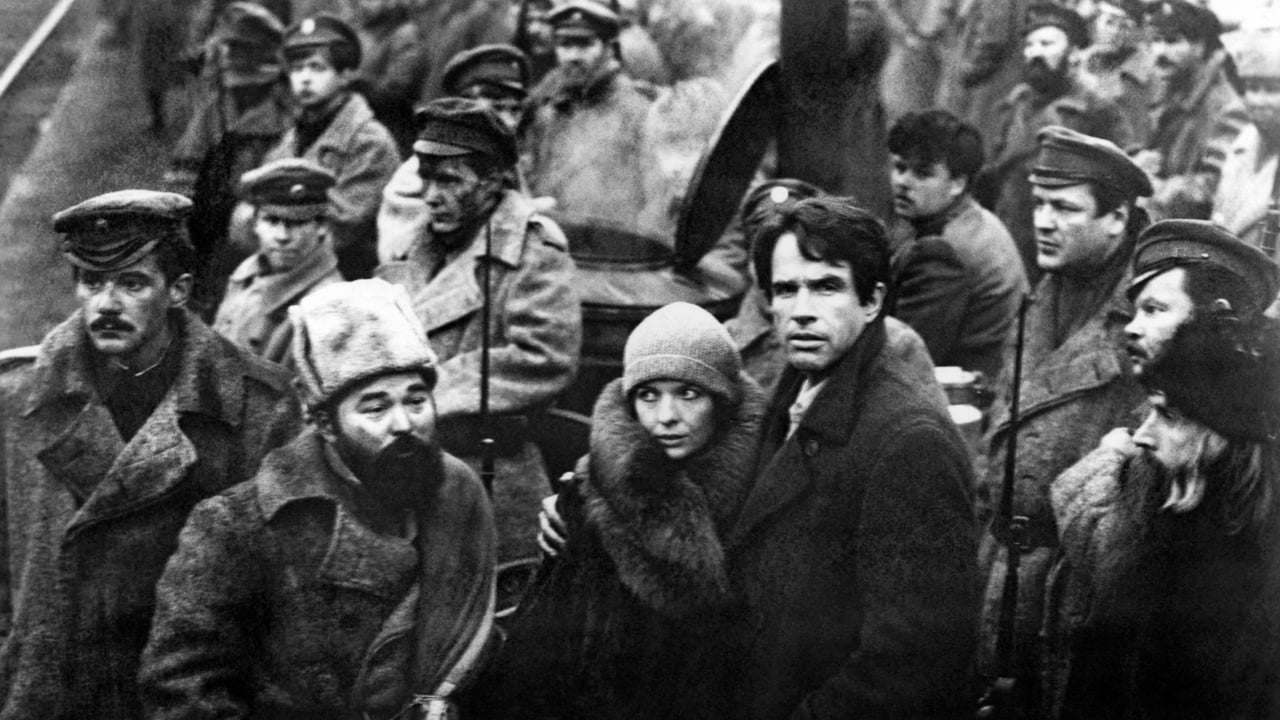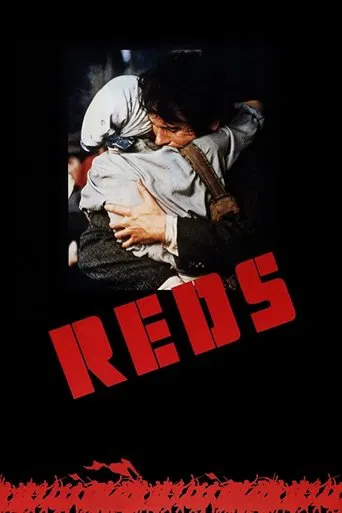Scanialara
You won't be disappointed!
GarnettTeenage
The film was still a fun one that will make you laugh and have you leaving the theater feeling like you just stole something valuable and got away with it.
Numerootno
A story that's too fascinating to pass by...
Brendon Jones
It’s fine. It's literally the definition of a fine movie. You’ve seen it before, you know every beat and outcome before the characters even do. Only question is how much escapism you’re looking for.
dierregi
This is one of those great epic movies that for mysterious reasons are never shown on TV and are pretty much forgotten / unknown by the general public. It manages to mix successfully a love story with its turbulent historical background, in a way that I found even more convincing and less sentimental than Doctor Zhivago.I had the chance to watch it again after many years and I was truly surprised by how good it still is. It tells the story of John Reed - one of the very few foreigners buried in the Kremlin - and his turbulent relation with Louise Bryant. Particularly moving are the interviews with the "witnesses" that form the backbone of the movie. These people were Reed and Bryant's contemporaries, all in their late 70s/early 80s when the movie was shot, and some admit candidly to hardly remember Reed and Bryant.The movie starts with some witnesses speaking and then we are shown Reed and Bryant's first, awkward meeting, while Bryant was still married to her first husband. Soon the two move together in New York, while the anti-war movement is campaigning against the US entering WWI.Reed had already an adventurous past as field journalist and decided that WWI was a capitalistic war. He was intrigued by the Russian events in 1917 and managed to be in Moscow during the turbulent days of the Bolshevik revolution. Bryant - who had married him in the meanwhile - was with him. They both wrote books about those adventurous days.Back in the US the couple split up, with Reed wanting to be more involved with the Communist party and Bryant not so keen. There were also infidelities on both sides, hers with Eugene O'Neill. It was quite moving to see young Keaton and Nicholson playing Bryant and O'Neill. It made me think of their uneasy romance in "Something's got to give"...Anyway, Reed ends up in Russia again in 1919 and then imprisoned in Finland for wanting to leave Russia. Bryant decides to help him and starts an epically dangerous journey. In the meantime, Reed has been freed and is forced to campaign in the USSR, while his health is slowly deteriorating. When the two finally meet at Moscow station, you have a truly moving moment, not exploited in any sugary, sentimental way. The bitter end is however around the corner.Definitely Beatty best work, both as an actor and as a director - for which he got a well deserved Oscar. Keaton also deserved it, for her portrayal of Bryant. She was nominated but the Oscar for leading actress went to Katharine Hepburn. In the same year the other contenders were Streep and Sarandon - some fierce competition, not like nowadays.... The movie was robbed from winning best picture by the more conventional "Chariots of fire".
jadavix
"Reds" is hopelessly overlong, but still a decent movie. The first half - all one hour and forty five minutes of it - is mostly just there to set up an unbelievable and uninteresting love story. Keaton is dowdy and unappealing and we get no sense of why Beatty's John Reed would have fallen for her.Nicholson as Eugene O'Neill, perhaps, because he's also played as no great catch. He doesn't add much to the movie though, apart from the thrill of saying "there's Jack Nicholson!" while you're waiting for the first half of the movie to end. Gene Hackman is also in there, not adding a whole lot either.The movie really gets going in the second half, which saved it for me. Perhaps it was the fact that the love story is moved aside for political intrigue in Russia, and we get a sense of John Reed as a man swept up in the current of history, used for purposes aside from his intent and not really understanding his role. This is where the movie becomes gripping.Throughout the movie there are interjections from real people who presumably knew the real John Reed. These are generally more interesting than the movie itself and suggest a documentary approach would have been more fulfilling. At times the cuts from these scenes back to the action is jarring, which seems to detract from the dignity of the speaker, as though Beatty had to use all the footage of these speakers he had available to him, and had to stick it in somewhere, even if it didn't fit.Overall, the love story is too stagy for the weight of the material and should have been excised. It leaves you with a lot to wade through if you want to get to the interesting parts.
gavin6942
A radical American journalist (Warren Beatty) becomes involved with the Communist revolution in Russia and hopes to bring its spirit and idealism to the United States.This film seems to be something like a docudrama, before there really was such a thing as a docudrama. We have actors portraying characters at this critical point in history with Bolsheviks, socialists and all that. But every so often we cut to real people, playing themselves, talking about the events. That is not too different than how things are done on the history programs today.Perhaps not well known anymore, John Reed was a real journalist who really lived through the Russian Revolution. What you see in this film is more or less true. And that makes it all the more interesting, because the role of Americans in Russia at the time is typically ignored or downplayed.
Kieran Green
Warren Beatty's 'Reds' is a sweeping and epic which mixes drama and actual interview testimonies from major social radicals of the period which are an amazing technique to fill in for exposition. Set against the backdrop of the tumultuous start of the twentieth century, Keaton/Beatty are the two journalists whose equally tumultuous relationships is punctuated by the outbreak of WWI and the Bolshevik Revolution.the pair find each other swept up in the Revolution. Beatty becomes disillusioned with Communism when he sees his words and intentions controlled by the growing Soviet propaganda machine. Shot by Cinematographer Vittorio Storaro reds is stunning, it's a 3 Hour & 12 minute epic which just sweeps byjoining them are supporting cast are Gene Hackman making a brief appearance Jack Nicholson as Eugene O'Neil, it's far better and whole some affair than David Lean's 'Dr.Zhivago

